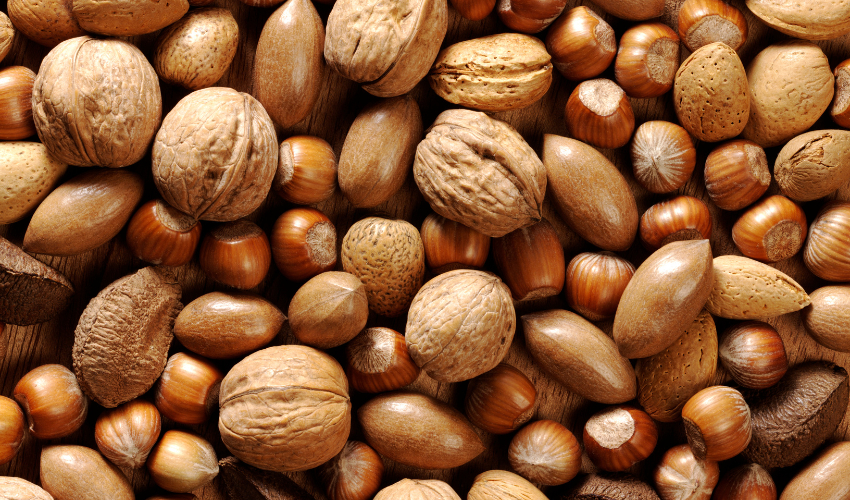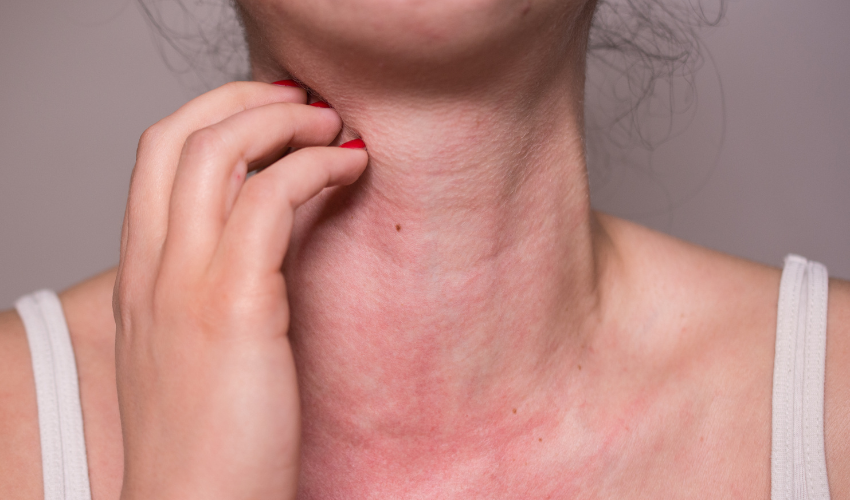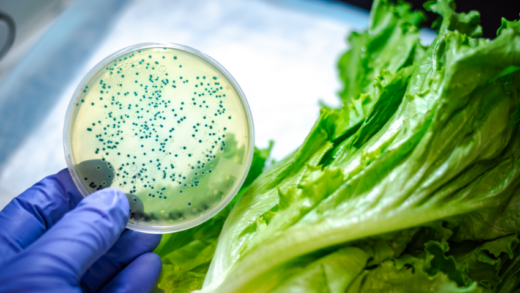Nut allergies can cause severe allergic reactions, including anaphylaxis, which can be life-threatening. Understanding nut allergies, their symptoms, and reactions can help individuals who suffer from them take precautions and seek timely treatment. In this article, we’ll explore the various types of nut allergies, their symptoms, and how to manage and prevent them.

What Allergies Can Nuts Cause and What Are the Symptoms?
Nuts are a common food allergen and can cause a wide range of allergic reactions. The most common nuts that cause allergies are peanuts, tree nuts (such as almonds, cashews, and walnuts), and seeds (such as sesame seeds). Here are some of the allergies that nuts can cause and their symptoms:
Peanut Allergy

Peanuts are not true nuts but are legumes. However, they are a common cause of severe allergic reactions. Peanut allergy symptoms include:
- Hives or redness and itching of the skin
- Stomach cramps, diarrhea, or vomiting
- Swelling of the lips, tongue, and throat
- Difficulty breathing, wheezing, or coughing
- Anaphylaxis, which is a severe, potentially life-threatening allergic reaction
Tree Nut Allergy

They include almonds, cashews, hazelnuts, pecans, pistachios, and walnuts. Tree nut allergy symptoms include:
- Hives or a rash on the skin
- Stomach cramps, nausea, or vomiting
- Swelling of the lips, tongue, and throat
- Difficulty breathing or shortness of breath
- Anaphylaxis, which is a severe, potentially life-threatening allergic reaction
Seed Allergy

Seeds, such as sesame seeds, can cause allergic reactions. Seed allergy symptoms include:
- Hives or redness and itching of the skin
- Swelling of the lips, tongue, and throat
- Difficulty breathing or shortness of breath
- Anaphylaxis, which is a severe, potentially life-threatening allergic reaction
How to Manage and Prevent Nut Allergies

Managing nut allergies involves avoiding the nuts that cause an allergic reaction. Here are some tips to help manage and prevent nut allergies:
- Read food labels carefully and avoid foods that contain nuts.
- Ask about the ingredients in restaurant meals before ordering.
- Carry an epinephrine auto-injector, such as an EpiPen, and know how to use it in case of an allergic reaction.
- Wear a medical alert bracelet or necklace that identifies the allergy.
- Educate family, friends, and co-workers about the allergy and how to respond in case of an allergic reaction.
FAQs
Can nut allergies develop later in life?
Yes, it is possible to develop nut allergies later in life, even if you have previously consumed nuts without any problems.
Can nut allergies be cured?
Currently, there is no cure for nut allergies. The only way to manage the condition is to avoid the nuts that cause an allergic reaction.
Can a person with a nut allergy eat foods cooked in nut oil?
It depends on the type of nut oil used. Highly refined oils, such as peanut oil, are unlikely to cause an allergic reaction, but cold-pressed or unrefined oils may still contain allergenic proteins.
What is cross-contact, and how can it be prevented?
Cross-contact occurs when a food allergen comes into contact with a non-allergenic food or surface, causing an allergic reaction. To prevent cross-contact, wash hands and cooking surfaces thoroughly before preparing or consuming food. Use separate utensils and equipment for allergenic and non-allergenic foods, and avoid sharing dishes or utensils with others.
What should I do if I suspect an allergic reaction?
If you suspect an allergic reaction, seek medical attention immediately. Call 911 or your local emergency number if the reaction is severe or if you experience symptoms of anaphylaxis, such as difficulty breathing or loss of consciousness.
Can nut allergies be inherited?
Yes, nut allergies can be inherited. If a family member has a nut allergy, there is a higher risk of developing an allergy.
Can cooking or roasting nuts eliminate the allergen?
No, cooking or roasting nuts does not eliminate the allergen and can even make the allergy worse for some individuals.
What should I do if I accidentally consume nuts?
If you accidentally consume nuts and experience symptoms of an allergic reaction, seek medical attention immediately.
Conclusion
Nut allergies can be severe and life-threatening, but with proper management and prevention, individuals with nut allergies can lead healthy, fulfilling lives. By understanding the different types of nut allergies, their symptoms, and how to manage and prevent them, individuals can take the necessary precautions to avoid allergic reactions and seek timely treatment if needed. If you suspect you or someone you know has a nut allergy, consult with an allergist or healthcare provider for proper diagnosis and treatment. Remember, prevention is key to managing nut allergies and living a healthy, safe life.






















